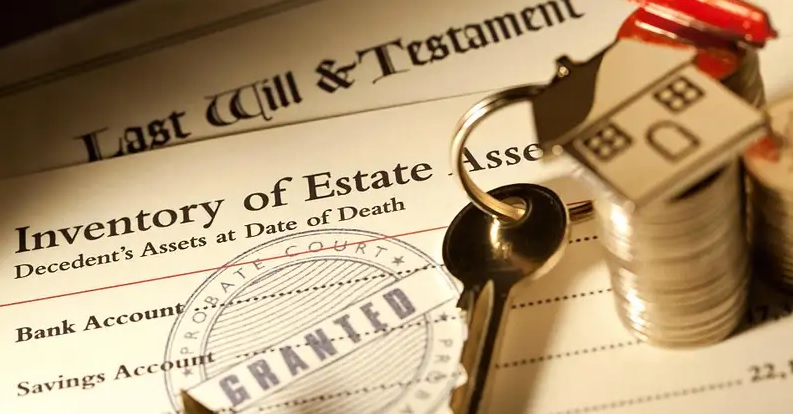What is Definition of Will in Law?
The definition of Will (commonly last Will and testament) is “a legal document that states how a person wants his or her property to be disposed of after death.” A last Will provides instructions and determination on distribution of your assets, money and property after your death. It also provides information on who your intended beneficiaries are, who would care for your children under 18, and your appointed executor responsible for administering your estate.
When you make a Will, you are making a legal declaration and making an express desire about your entire estate and desire on your property. Through such a declaration, you are ensuring that after you pass, executors will distribute your property according to your wishes.
If you are in a particular situation without a Will, you will not have a say on who gets which of your assets. In this case, the law will determine asset division. With Wills, you can decide what will happen to your property after your death.
Importance of Having Wills

Knowing the importance of having a Will is as important as knowing the definition of Will. A Will is the testator speaking after death. The provisions of the Will have the same substantial force and effect in the probate court as if the Will-maker stood before the court, instructing where the assets should go.
You may have large asset holdings, got divorced twice, have children from different marriages, complicated family situations, or maybe you just want to leave a beneficiary entitled by law out of your will. With a Will, you can control the disposition of your properties, which will prevent future complications and conflicts after your death.
Dying Without a Will; No Preservation of a Person’s Wishes
Apart from knowing the definition of Will, you must understand that there are legal consequences for dying without a valid Will (in legal terms, it’s called dying ‘intestate’). You will have no control on your asset distribution, or to determine who manages and carries out the distribution. Your properties will automatically be left to your next of kin, as provided under the intestacy rules under Chapter 4 of the Succession Act 2006 (NSW).
Your spouse will get your assets. In NSW, if you do not have a spouse, the order of relatives who are eligible to inherit is as follows:
- Children
- Parents
- Brothers and sisters
- Grandparents
- Aunts and uncles
- Cousins
The situation becomes complicated if you have a legal spouse and a de facto spouse (a new unmarried partner), or children from different relationships. To prevent complications, it is best to have a valid Will.
If you die without a Will and without eligible relatives, the government will receive your estate. Furthermore, intestacy rules only let your family members inherit from you. So if you want to leave some of your assets to friends or other significant persons, having a valid Will is vital.
Who May Make A Legal Document such as Wills?

Understanding the definition of Will requires understanding who may make Wills. Any person in Australia who is over 18 years of age and of sound mind can make a Will. However, you must note that there are specific legal requirements that you should follow in order for a Will to be valid.
Your Will should comply with the legal requirements provided under Section 6 of the Succession Act 2006 (NSW). If one of the requirements is missing, your Will no longer falls under the definition of Will that Australian laws recognise. The law would then deal with it as if there was no Will at all.
For a last Will and testament to be valid and legally enforceable, the following should be met:
- it must be in writing (whether typed or handwritten);
- the Will-maker must sign it, or some other person must sign it in the presence of and at the direction of the Will-maker;
- the Will-maker must sign in the presence of two or more adult witnesses;
- at least two of those witnesses must attest (witness) and sign the Will in the presence of the Will-maker (but not necessarily in the presence of each other); and
- the signature of the Will-maker or person signing at the direction of, and in the presence of the Will-maker must be made with the intention of executing the Will (animus testandi).
It is significant to note that the Will-maker must have “testamentary capacity.” McMillan J in Re Jones [2021] VSC 273 (17 May 2021) explains the concept:
To prove a testator had testamentary capacity, the Court must be satisfied that the testator:
- (a) understood the effect of making a Will;
- (b) was aware of the general nature and value of the estate;
- (c) was aware of those who would have a natural claim to the estate; and
- (d) was able to evaluate and discriminate between such claims.
This means that you are mentally competent and understand the definition of Will, know the legal effects, and are aware of the extent of your assets and the persons who would benefit from your estate.
Furthermore, the witnesses do not need to know that it is the Will-maker’s Will that they are witnessing. The law also provides that beneficiaries cannot be witnesses as they may lose their entitlement under the Will. It is also not essential that the Will-maker signs at the foot of the Will, and for the Will to have an attestation clause.
What to Include in This Legal Document Apart from Your Property?
Ideally, your Will should include the following:
- A list of all your physical and financial assets, such as properties, cars and bank accounts
- A list of your beneficiaries and their addresses
- Your appointment of a competent executor who you can trust to carry out your desires. This person is in charge of collecting estate assets, distributing assets to the named beneficiaries, among others
- Your appointment of a legal guardian who would take care of your children under 18 years of age
- Your desired funeral arrangements
- Specific assets you want to give to friends or organisations.
Always remember that the terms in the Will should be specific. Your wishes must be clear to avoid misinterpretation and confusion at the time of your death.
Why You Should Seek Legal Advice?
Parties may challenge a Will’s validity on a number of grounds. To ensure that your Will and testament is valid and follows the form provided by law, it is important to have it prepared by experts.
We at JB Solicitors are here to help you. We will guide you through every step and help you in drafting your entire Will, providing impartial witnesses, and selection of an executor.
Do you have more questions on the definition of Wills? Contact and write to us for expert legal advice.
